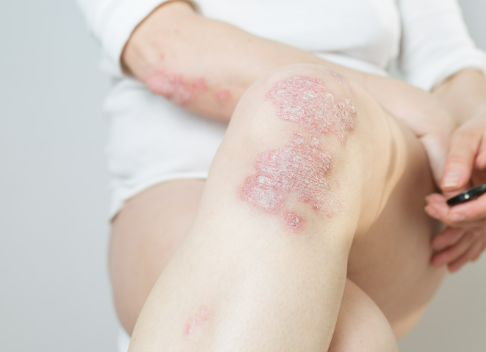Psoriatic arthritis (PsA) is a chronic autoimmune condition that affects both the skin and joints, leading to pain, swelling, and stiffness. However, with the right management strategies, individuals with PsA can lead active lives.

Symptoms of Psoriatic Arthritis
- Joint pain and stiffness, especially in the morning.
- Swollen fingers and toes (sausage-like appearance).
- Skin psoriasis with red, scaly patches.
- Fatigue and reduced range of motion.
Treatment and Management Options
Medications:
- NSAIDs (Non-Steroidal Anti-Inflammatory Drugs): Reduce pain and inflammation.
- DMARDs (Disease-Modifying Antirheumatic Drugs): Slow disease progression.
- Biologics: Target immune system pathways to reduce symptoms.
Lifestyle Changes:
- Maintain a healthy diet rich in anti-inflammatory foods (fish, nuts, fruits, and vegetables).
- Engage in low-impact exercise like swimming or yoga to maintain flexibility.
- Manage stress with mindfulness or therapy, as stress can worsen symptoms.
Physical Therapy:
- Helps improve mobility and reduce joint stiffness.
- Strengthens muscles to provide joint support.
Alternative Therapies:
- Acupuncture and massage may help relieve discomfort.
- Herbal supplements like turmeric and omega-3s have anti-inflammatory properties.
With a personalized treatment plan, PsA can be managed effectively. If you experience persistent joint pain and skin issues, consult a rheumatologist for early intervention.